In Nigeria, the northern region is where the smallholder farmers mostly reside, and they form the backbone of the agricultural economy; on June 19, 2025, the usually quiet community of Wasai in Minjibir LGA, Kano State, became the centre of agricultural fanfare as hundreds of smallholder farmers, agro-dealers, seed companies, government agencies, traditional leaders, development partners, researchers, and stakeholders gathered for Seed Fair 2025.
Themed “Enhancing Access to Quality Seeds for Smallholder Farmers”, the fair was organised by the Foundation for Sustainable Smallholder Solutions (FSSS) in partnership with AVISA and other agricultural bodies, as a critical platform for knowledge-sharing, innovation, and market linkages.
The fair was part of FSSS’s broader mission to address constraints in the seed value chain and to promote equitable access to quality agricultural inputs across Northern Nigeria.
Bridging Gaps Between Seed Providers and Farmers
Despite increased awareness around modern agricultural techniques, many smallholder farmers in Northern Nigeria continue to face challenges in accessing certified seeds. The Seed Fair 2025 directly tackled this issue by creating a physical marketplace and dialogue forum where farmers could meet directly with seed companies, researchers, and extension experts.
Dr. Ignatius Angarawai, Country Representative for ICRISAT Nigeria, highlighted the significance of this linkage:
“This event is very well attended and inclusive. We’ve seen men, women, youth, and leaders from across the agricultural ecosystem come together. The emphasis here is on the importance of quality seeds—seeds that can boost productivity and resilience. That’s why FSSS organised this fair—to promote interaction and local access.”
The fair featured booths and exhibits from leading seed producers and research institutions including IAR, ICRISAT, IITA, CIMMYT, Premier Seed, AgriTropic, and the Centre for Dryland Agriculture (BUK). These partners showcased drought-resistant, early-maturing, and high-yield seed varieties—many of them specifically bred for the Sudan and Sahel agroecological zones.
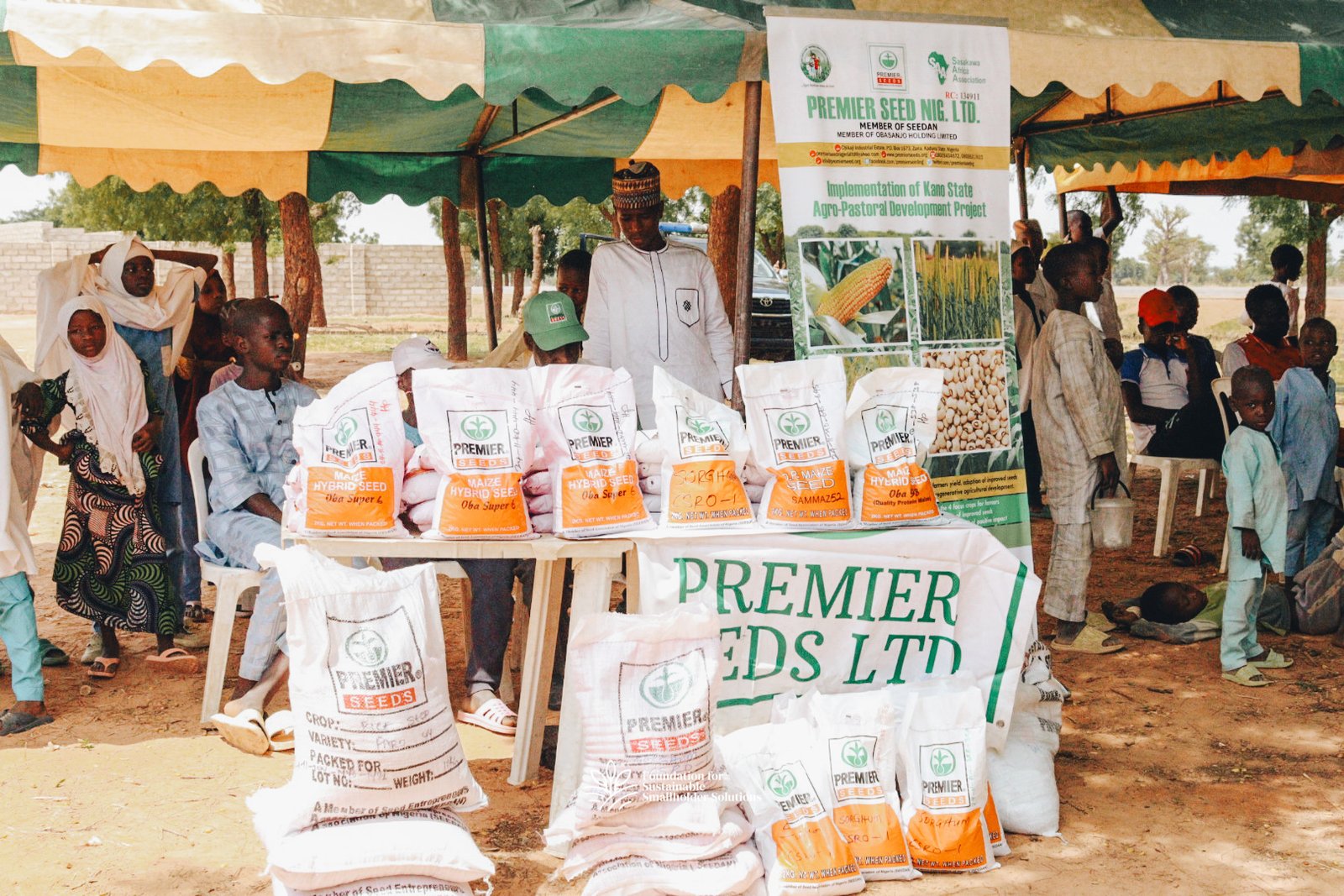
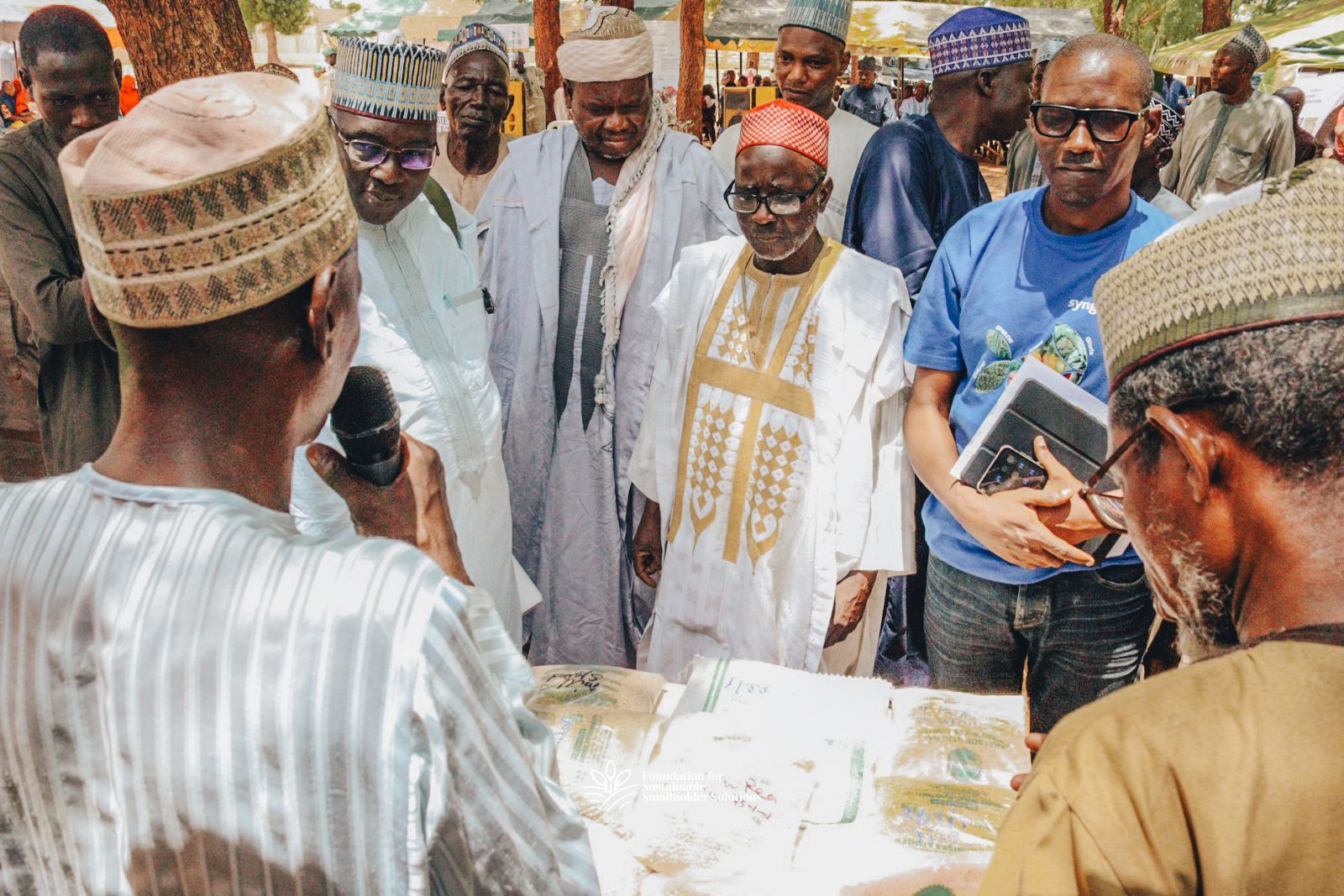
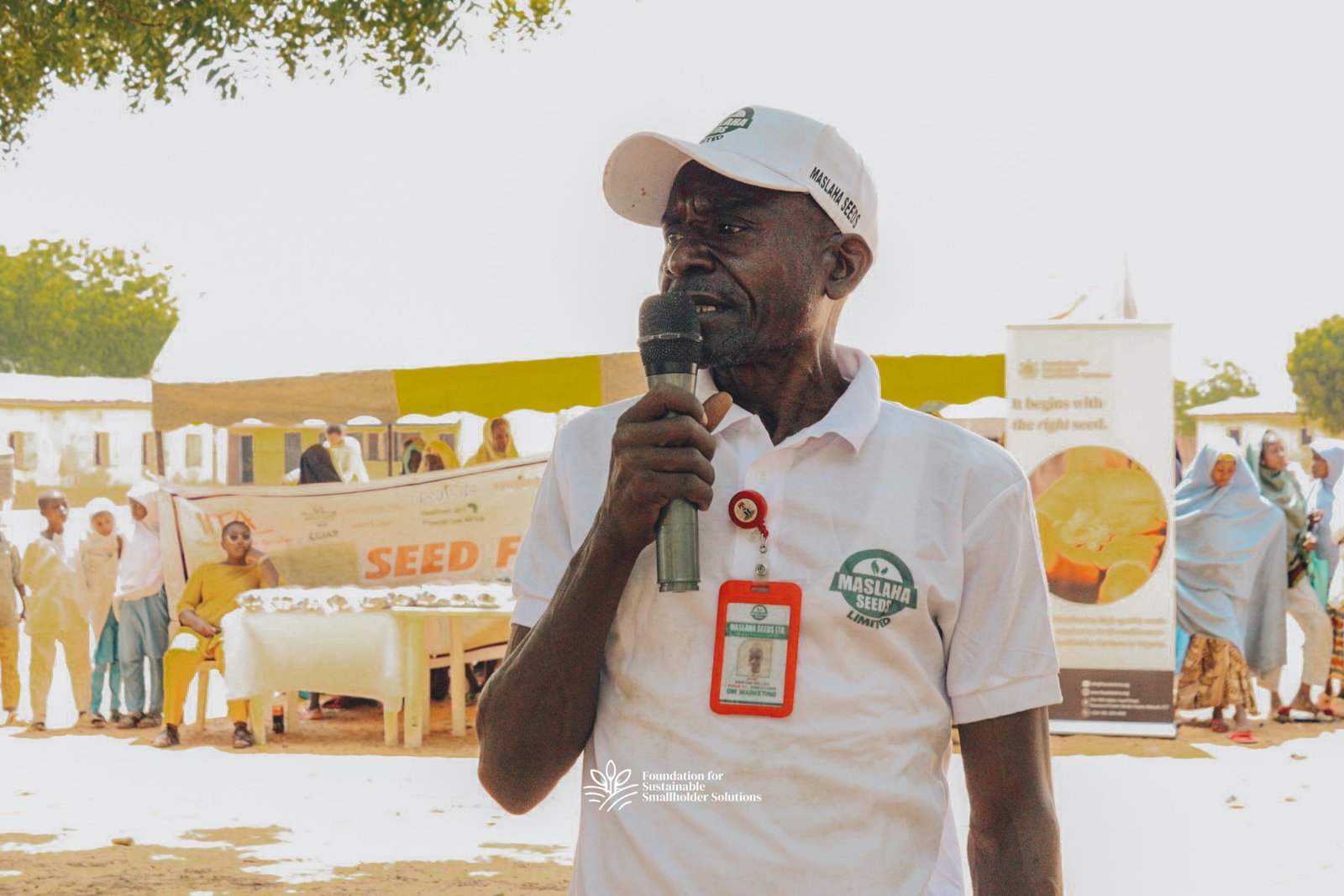
Farmers at the Centre of Innovation
The Seed Fair wasn’t just about showcasing new technologies—it was an opportunity for farmers to lead and learn. Mr. Salisu Shuaibu, Farmers’ Hub Manager in Minjibir, shared how farmers in his locality have benefited from participating:
“The fair has helped us access hybrid seeds like tomato, cowpea, and sorghum—seeds that mature early, grow well, and are perfect for both eating and selling. The farmers are always excited for this event. They keep asking when the next one will happen because it gives them direct access to improved seeds and useful information.”
Mr. Shuaibu’s Hub plays a vital role in seed distribution and farmer education, acting as a bridge between agricultural innovation and the rural communities that need them most. His feedback reflects the fair’s practical value in building local capacity and demand for improved seeds.
Strengthening Last-Mile Seed Delivery
One of the most urgent issues facing seed sector development in Nigeria is the “last-mile” challenge—ensuring that high-quality inputs reach remote farmers on time and in appropriate quantities.
According to Henry Igbor, AVISA Project Supervisor at FSSS:
“The purpose of this seed fair is to address last-mile delivery. Seeds must match the farmers’ ecological zones to perform well. If a Sudan Savanna farmer plants a variety meant for the Sahel, the outcome may be disappointing. That’s why today is so important—farmers learn, interact, and source the right seeds for their conditions.”
This practical orientation made the Seed Fair 2025 not only a promotional event but also a vital extension service intervention. Field demonstrations, one-on-one consultations, and tailored advice helped ensure that farmers left the fair with both seeds and strategies.
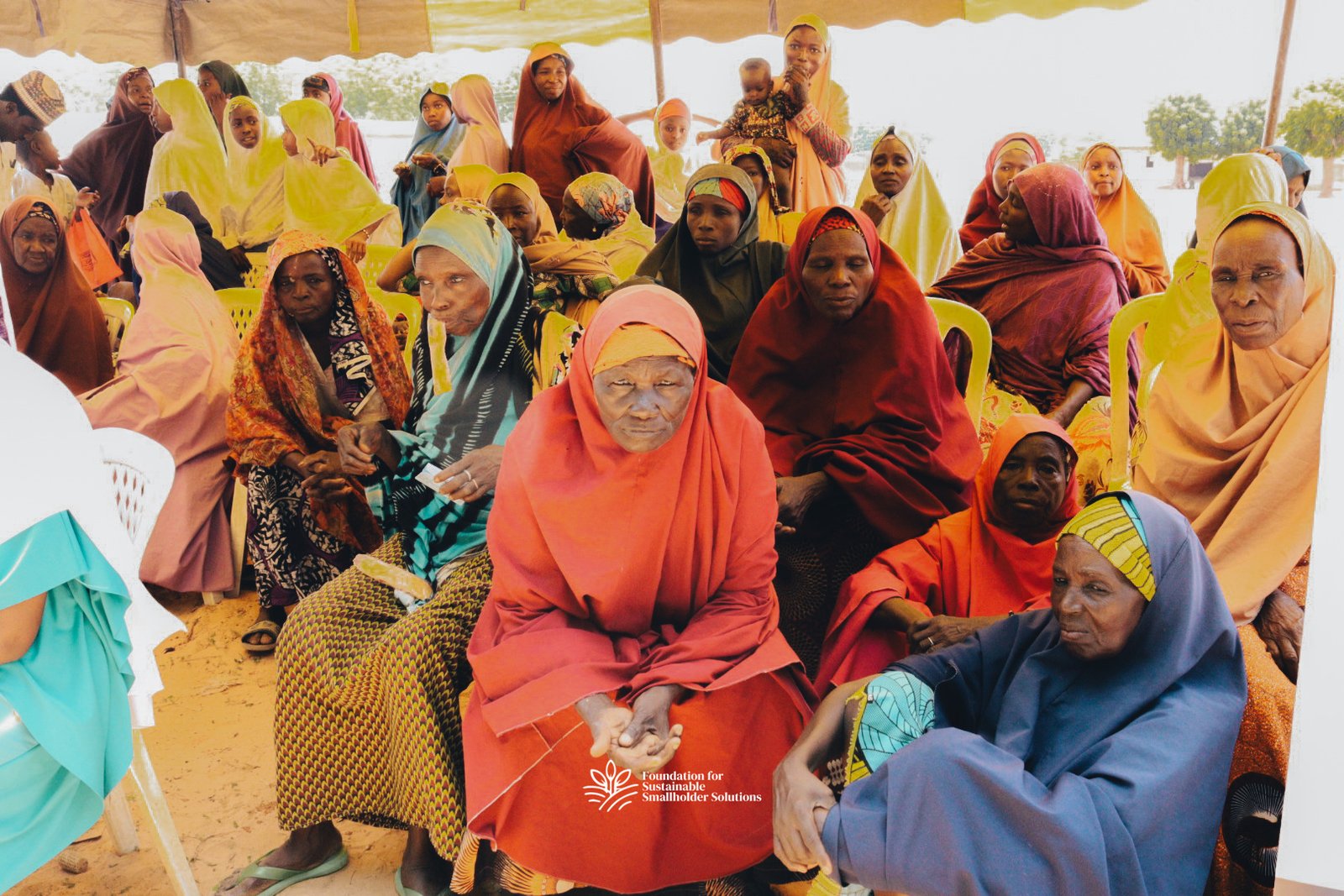
A Multi-Stakeholder, Collaborative Approach
The success of the Seed Fair rested heavily on strong partnerships. Institutions represented at the event included:
- AVISA (Accelerated Varietal Improvement and Seed Delivery of Legumes and Cereals in Africa)
- CIMMYT (International Maize and Wheat Improvement Center)
- ICRISAT (International Crops Research Institute for the Semi-Arid Tropics)
- IITA (International Institute of Tropical Agriculture)
- IAR (Institute for Agricultural Research)
- Federal University of Agriculture, Makurdi
- Centre for Dryland Agriculture (BUK)
- CGIAR (Consultative Group on International Agricultural Research)
This diverse coalition underscores the integrated approach needed to reform the seed system—from research and development to delivery, regulation, and farmer feedback.
Dr. Isaiah Gabriel, Key Account Manager at Syngenta Vegetable Seeds Nigeria, reflected on the fair’s impact from a private sector perspective:
“This is a rare opportunity to bring farmers and distributors together. Many of the farmers here struggle to access vegetable seeds, but today they’ve connected directly with our distributors—Premier Seed and AgriTropic. This will enhance access and help us follow up with field demos and promotions of the varieties.”
Towards Sustainable Seed Systems
Looking ahead, stakeholders at the Seed Fair called for stronger support to institutionalise community-based seed systems. These systems bring seed production closer to the farmer, creating local enterprises while reducing dependency on distant or foreign suppliers.
Dr. Angarawai concluded with a strong recommendation:
“We need the government to partner with FSSS and organisations like ICRISAT to build these systems. Through Farmers’ Hubs, we can promote local seed production, sustain productivity, and reduce hunger and poverty in our rural communities.”
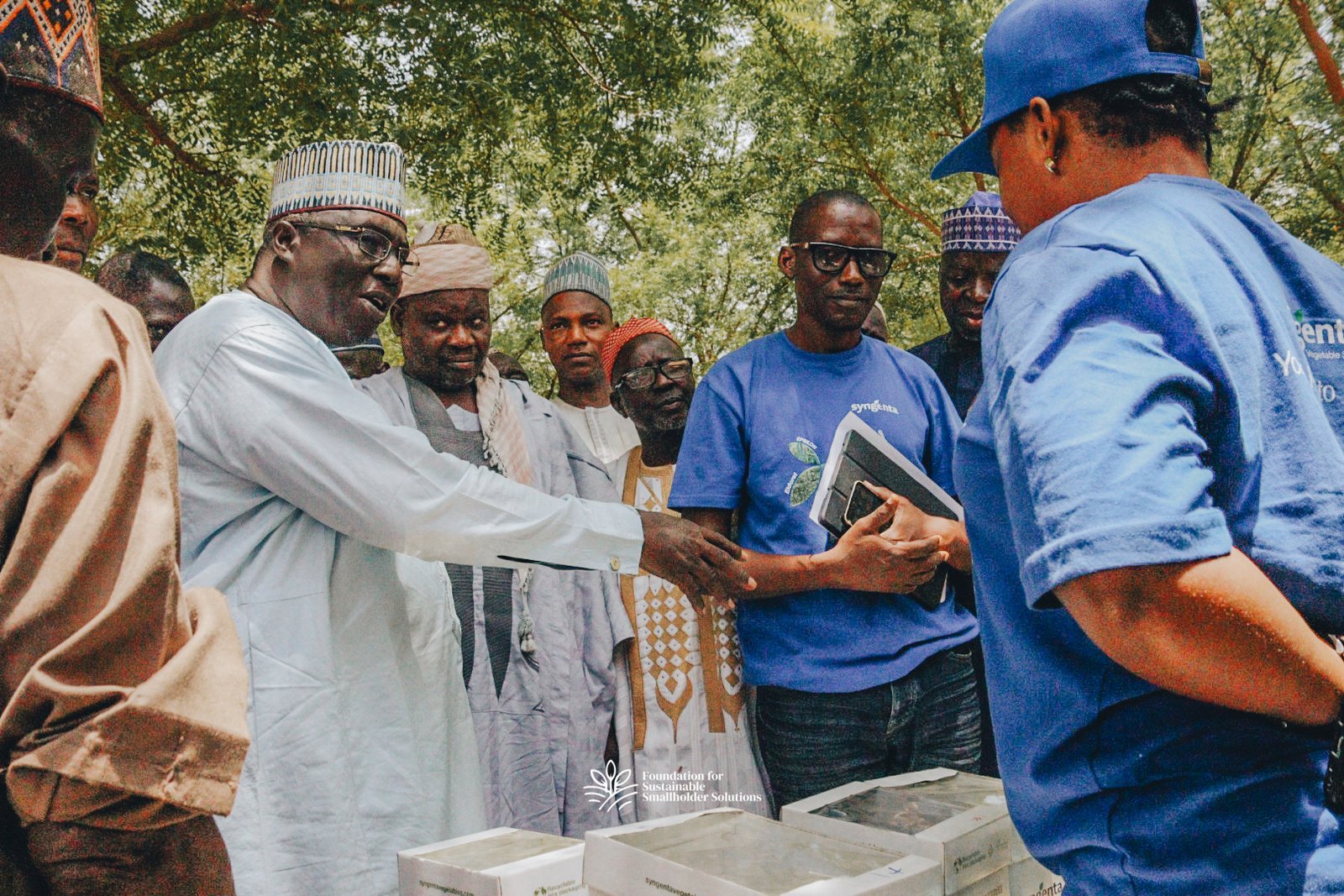
Key Takeaways from Seed Fair 2025
- Over 400 farmers participated from across Minjibir and surrounding LGAs
- Direct engagement with seed companies and extension experts
- Improved varieties for dryland agriculture showcased
- Participation from state and federal dignitaries, traditional rulers, and women/youth groups
- A collaborative platform connecting research, the private sector, and grassroots farmers
In a country where the majority of farmers still depend on rain-fed agriculture and local seed varieties, the Seed Fair 2025 has proven to be a powerful model for inclusive agricultural development. By combining innovation, partnership, and grassroots mobilisation, the Foundation and its partners are not just improving access to quality seeds—they are planting the seeds of resilience, prosperity, and transformation in Nigeria’s rural communities.


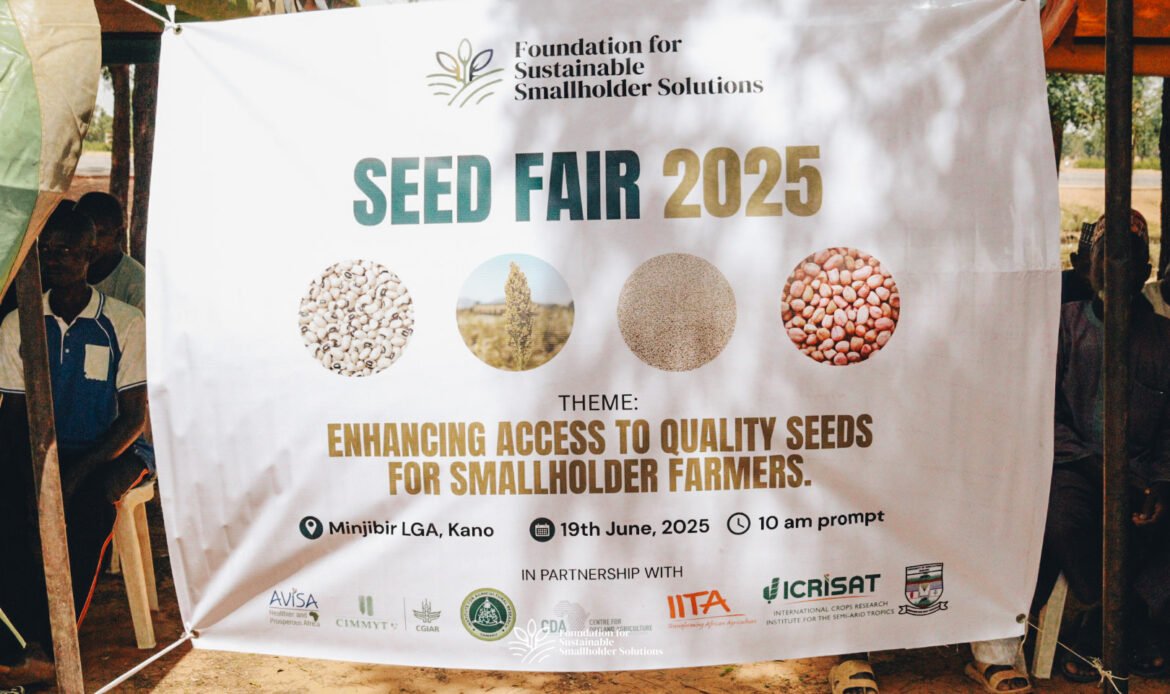
2 replies on “Seed Fair 2025: Empowering Northern Nigeria’s Smallholder Farmers Through Access to Quality Seeds ”
Hello
My name is Abdullahi Ado jibril
I missed your minjibir event
I want to know more about your organisation and how to get quality seeding
Thank you for messaging us. Please send us a message on Facebook or Instagram @fsssnigeria and we will provide you with the information you’re asking for.